Paternal Age And Down Syndrome
Paternal age and down syndrome. The rate of Down syndrome for both maternal and paternal age greater than 40 years is approximately 60 per 10000 births which is a six-fold increase compared with maternal and paternal ages less than 35 years of age. Multiple neonatal and pediatric disorders have been linked to older paternal ages. The frequency of Down syndrome DS in infants of older fathers has been examined in two sets of data.
People have long recognized there is a connection between maternal age and Down syndrome. Fisch and his colleagues found that the rate of Down syndrome steadily increased with advancing paternal age for the maternal age group of 35 to 39 years. In this later maternal age group the paternal contribution to Down syndrome was 50.
Paternal age and Down syndrome. The association with paternal age was mostly explained by adjusting for maternal age but remained significant in the Czech Republic. Down syndrome paternal age maternal age and birth order.
Stene J Stene E. However there was a small deficiency of DS infants born to older fathers by women greater than or equal to 35 years. The risk for a fetus to have any de novo chromosomal aberration increases more with advancing paternal age for older mothers than for younger ones.
3 filas For paternal age 40 years and greater there was a 2-fold increase in the rate of Down. Hook EB Cross PK Lamson SH Regal RR Baird PA Uh SH. A paternal age effect was seen in association with a maternal age of 35 years and older and it was most.
Researchers found that the rate of Down syndrome among parents over 40 was 60 per 10000 births which is six times higher than the rate found among couples under 35. Comments on a paper by J. Paternal age and Down syndrome in British Columbia.
Advancing paternal age was not associated with an increase in risk for either Down syndrome or chromosomal disorders other than Down syndrome. The mean maternal age of children with Down syndrome was 321 years in California and 269 years in the Czech Republic.
Studies suggest an older paternal age might increase the risk of the severe mental disorder schizophrenia and might be associated with earlier onset of schizophrenia symptoms.
Advancing paternal age was not associated with an increase in risk for either Down syndrome or chromosomal disorders other than Down syndrome. Lack of tight control has been an important weakness of other studies on this subject. Women over age 35 are at higher risk for giving birth to a child with Down syndrome. A paternal age effect was seen in association with a maternal age of 35 years and older and it was most pronounced when maternal age was 40 years and older p 00004. Comments on a paper by J. Childhood acute lymphoblastic leukemia. In this age group the paternal contribution to Down syndrome was 50. In the early 1900s researchers noticed children with the condition were frequently the last-born in large families and came shortly before a woman experienced menopause. Researchers found that the rate of Down syndrome among parents over 40 was 60 per 10000 births which is six times higher than the rate found among couples under 35.
The mean of the difference delta in paternal age of cases compared to those with normal genotypes after controlling. Thus the ages of both parents have to be taken into account as an indication for prenatal diagnosis. Among Down syndrome cases born in 1964--1976 reported to the British Columbia Registry for Handicapped Children the mean parental age was about half a year greater than in the entire population of live births after controlling for maternal age a difference significant at the 05 level. There was no parental age influence on Down syndrome until age 35 years and older. The mean maternal age of children with Down syndrome was 321 years in California and 269 years in the Czech Republic. People have long recognized there is a connection between maternal age and Down syndrome. In this later maternal age group the paternal contribution to Down syndrome was 50.








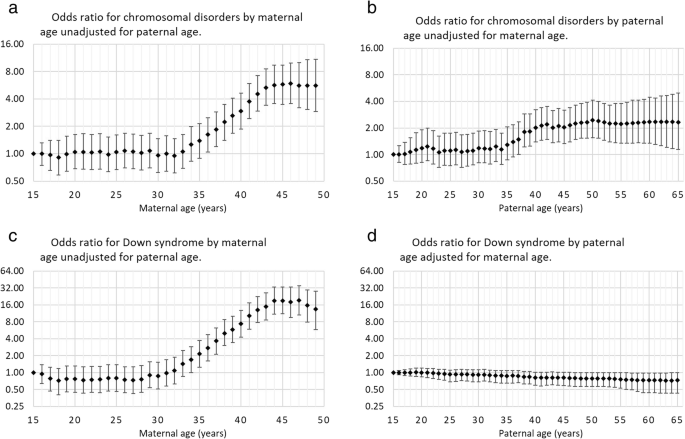
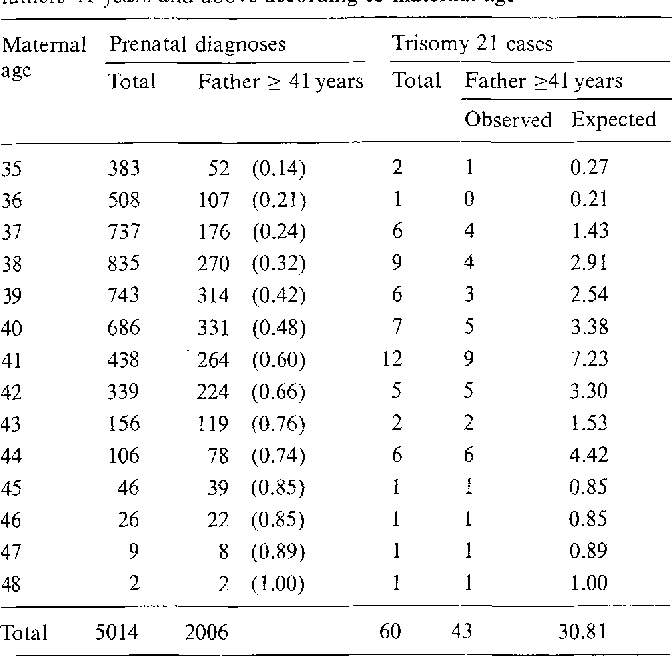

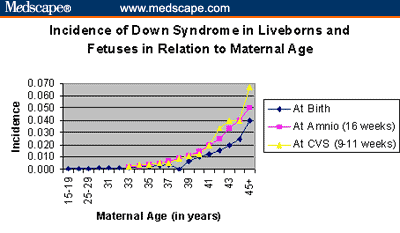
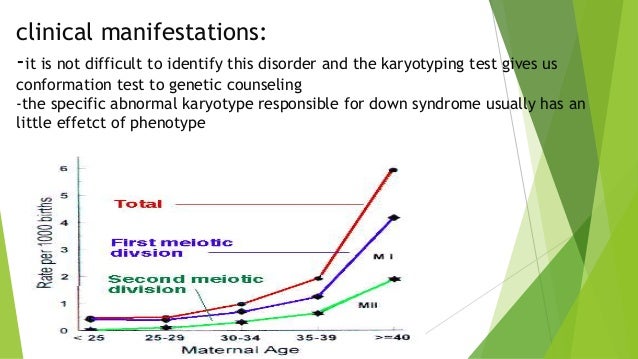
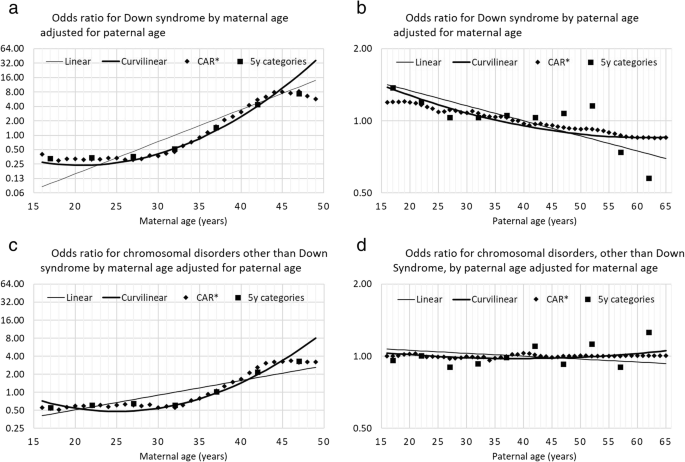
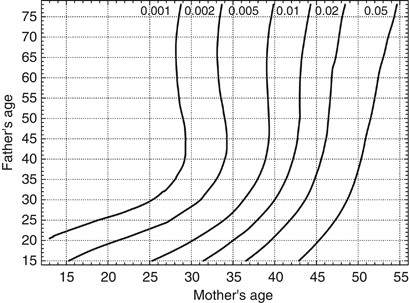


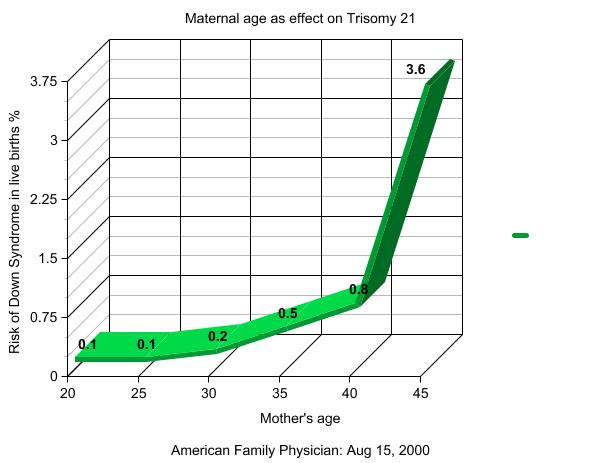
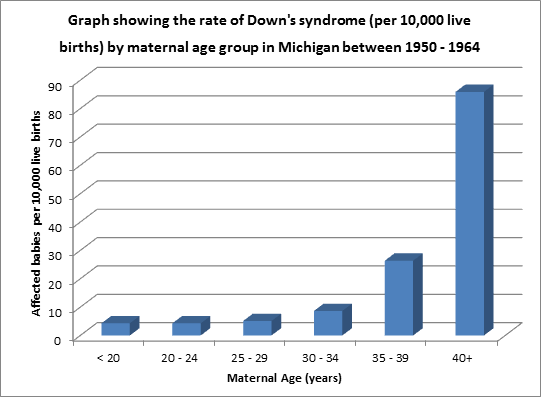
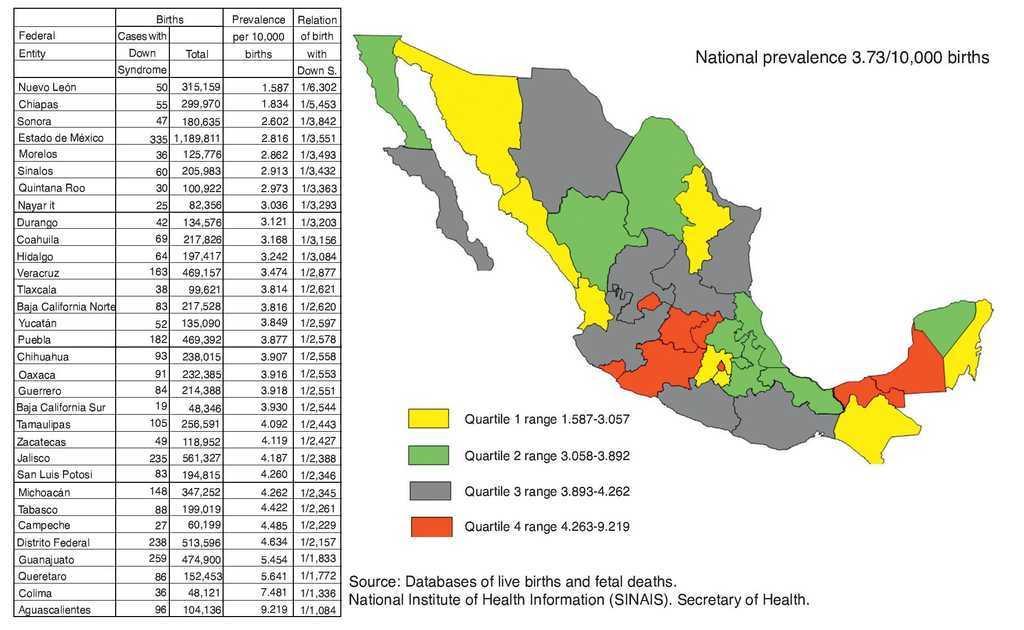
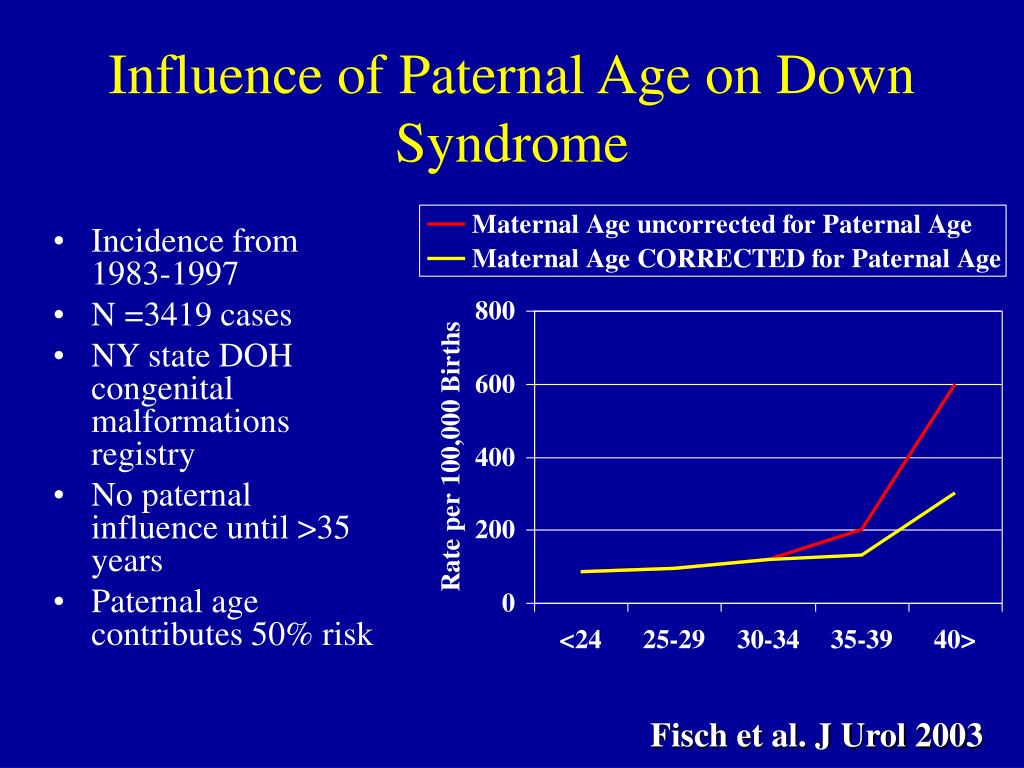

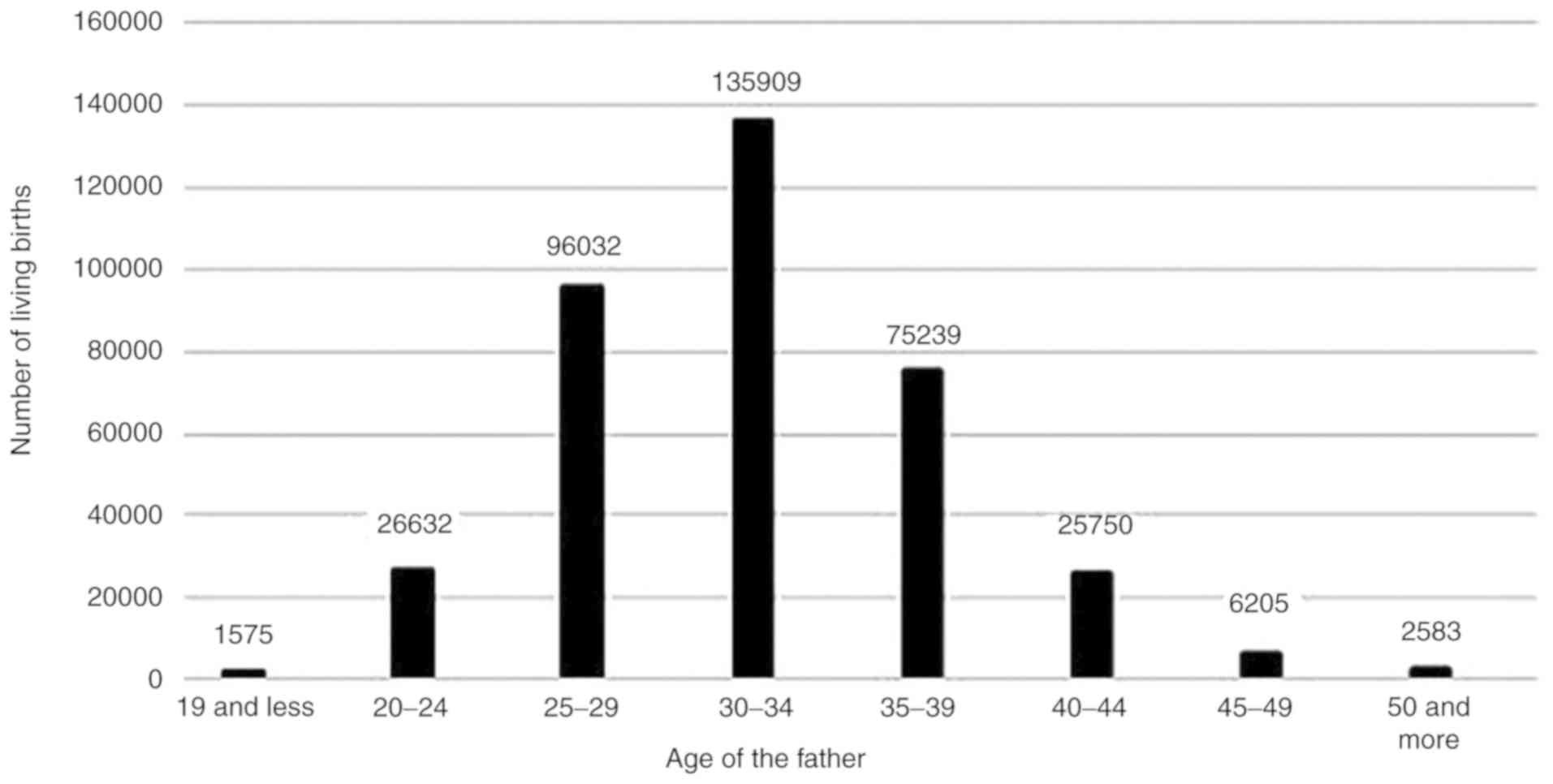
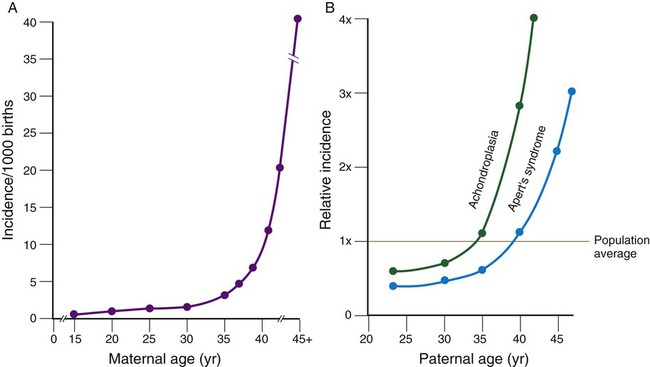
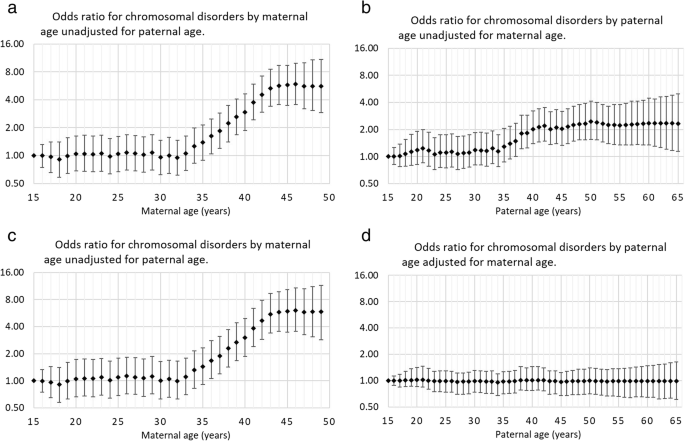



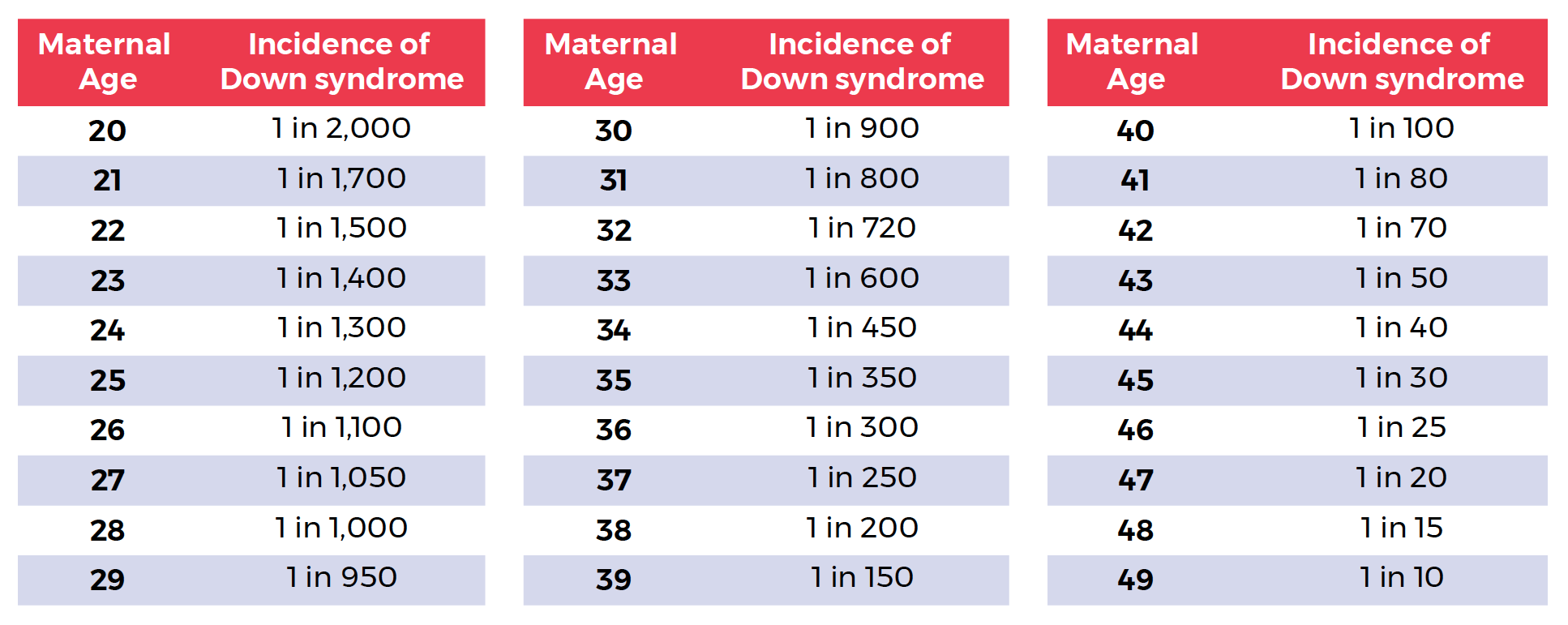
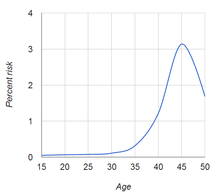
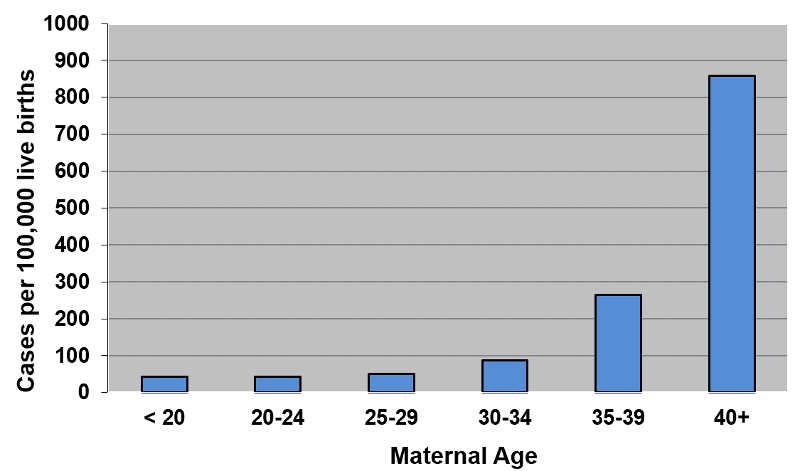

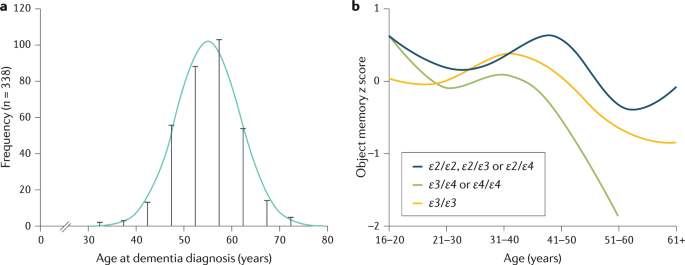

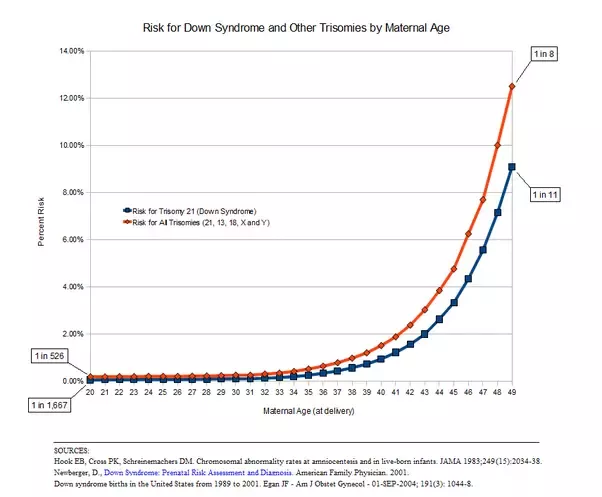

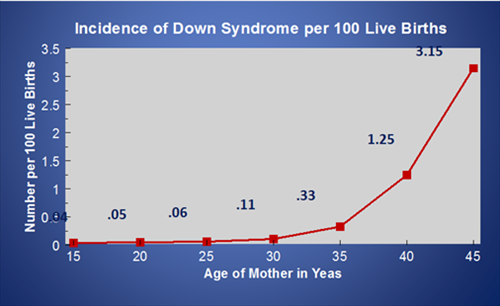

Post a Comment for "Paternal Age And Down Syndrome"